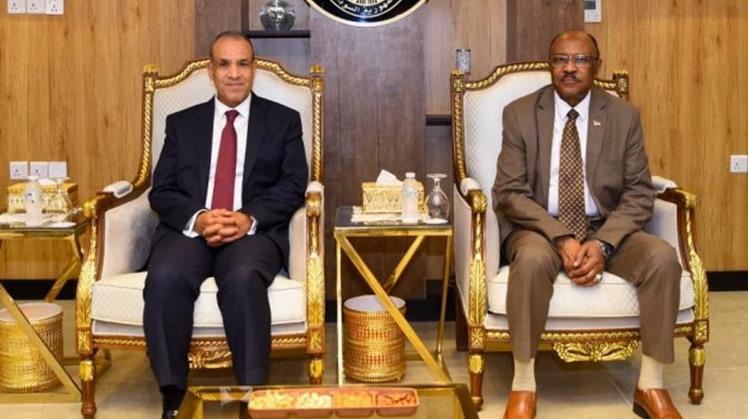CAIRO – 2 October 2025: Egypt and Sudan’s foreign ministers reiterated on Thursday their unified position on water security as downstream countries of the Nile River.
During a meeting in Port Sudan, Foreign Minister Badr Abdelatty and his Sudanese counterpart, Mohieldin Salem, stressed the need for full adherence to international law governing the use of the Eastern Nile Basin.
They underscored both countries’ categorical rejection of any unilateral measures in this regard
Their meeting discussed the Sudanese crisis with Abdelatty affirming Egypt’s effective engagement in various efforts aimed at security a ceasefire and a humanitarian truce in Sudan.
On water security, Egypt and Sudan have long voiced concerns over Ethiopia’s filling and operation of its Grand Ethiopian Renaissance Dam (GERD), built on the Blue Nile unilaterally without a legally-binding deal governing the process.
Egypt and Sudan argue that such a deal would ensure their water rights, especially at the times of drought.
Ethiopia rejects a legally-binding deal on the dam, describing the project as a sovereign right and a cornerstone of its development and energy ambitions.
Last month, Addis Ababa inaugurated its $5 billion dam, with a reservoir capacity of 74 billion cubic meters, ignoring Egyptian-Sudanese concerns.
On the day of inauguration on 9 September, Egypt submitted a formal letter to the UN Security Council condemning GERD as an “illegal unilateral measure.”
The letter said Cairo had shown “utmost restraint” for years by resorting to diplomacy and international organizations, including the UN.
Adopting such measures, Egypt said, “is not out of weakness, but out of Egypt’s firm conviction in the importance of cooperation to achieve the common good of all Nile Basin states.”
Cairo has repeatedly asserted the unilateral filling and operation of the dam, without a binding legal agreement, pose an existential threat, as the country depends on the Nile for more than 98 percent of its water needs.
As he addressed the 80th session of the United Nations General Assembly (UNGA) late in September, Abdelatty accused Ethiopia of “endangering the lives of millions in the two downstream states” of Egypt and Sudan through unilateral actions.
The foreign minister stressed that Egypt is capable of protecting its water rights and will not compromise them.
 Thu, Oct. 2, 2025
Thu, Oct. 2, 2025